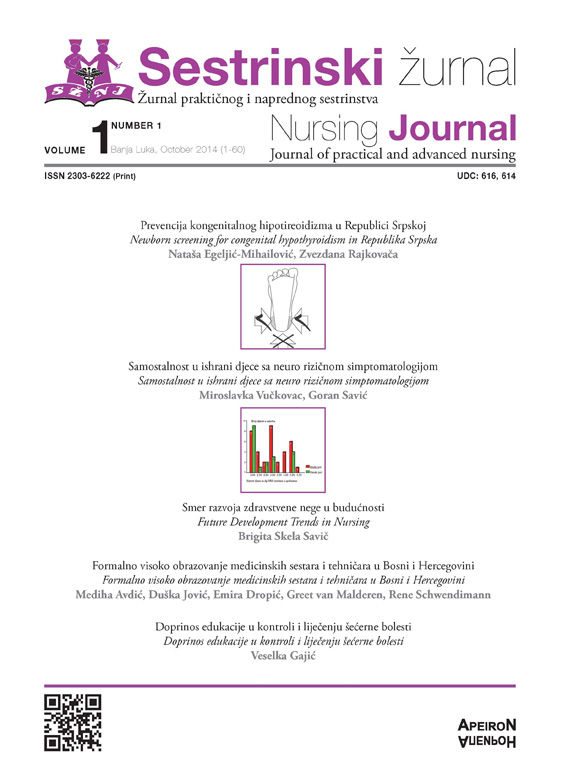Autonomy in the diet of children with neuro-risk symptomatology / Samostalnost u ishrani djece sa neuro rizičnom simptomatologijom
DOI:
https://doi.org/10.7251/SEZ0114011VAbstract
Children with neurological risk symptoms (NRS) due to the presence of risk factors during pregnancy, birth or early development as a result have difficulty psychomotor development. One of the problems of this group of children have problems of underdevelopment function of feeding.
The aim is to examine diet of children involved in the rehabilitation treatment under dg NRS.
Analaliziran the diet 55 children with NRS for 4 mjeeseca in ZZMR “Dr Miroslav Zotović” in Banja Luka.
The average age of the group was 3.13 years, range 2-5.5 years. The sex ratio is 65.5: 34.5 in favor of males. The liquid feed was 7.3%, 52.7% mushy and 40.0% of the normal samples. Children in the sample with respect to the independence of the food are not independent at 29.1% of the sample, in part dependent on foreign aid at 36.4% and is dependent on others for help with 34.5% of the sample. The average age of the children of the liquid feed was 3,07 and the mushy 2.99, and 3.31 in the normal diet of years. In terms of movement pattern has 15 disabled children, 10 were moved with the assistance of another person, or aids, and 30 independently mobile children.
The largest number of children with dg NRS mostly located in the mushy and liquid diet, although the average age of the sample 3.13 years. Over a third of the sample in the diet is dependent on foreign aid.

